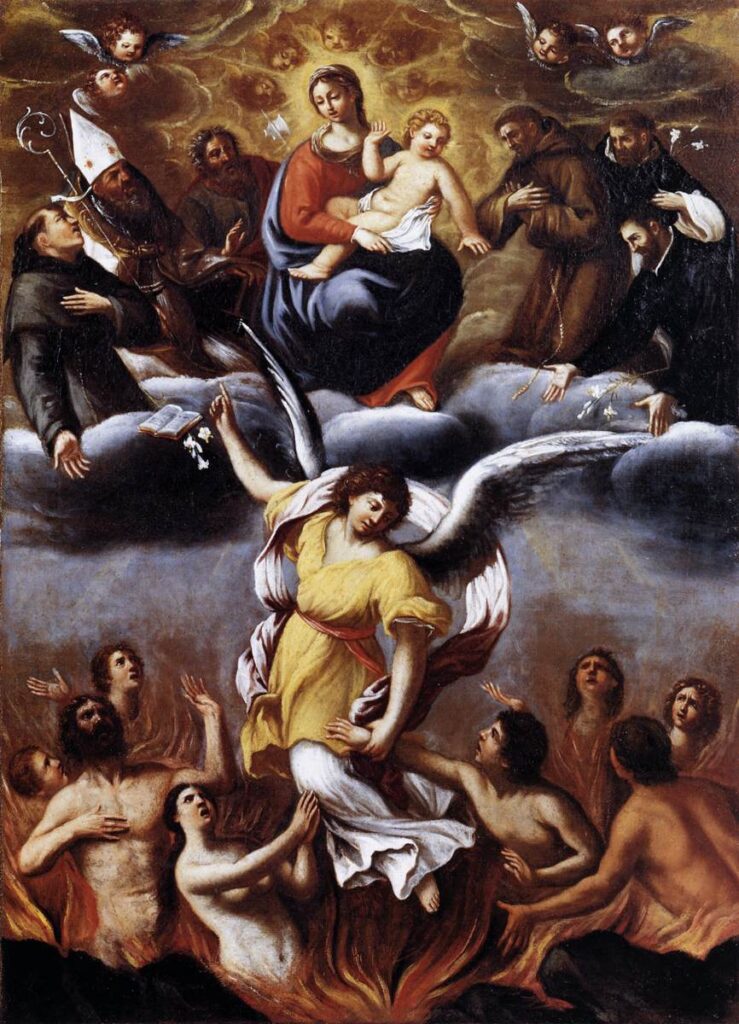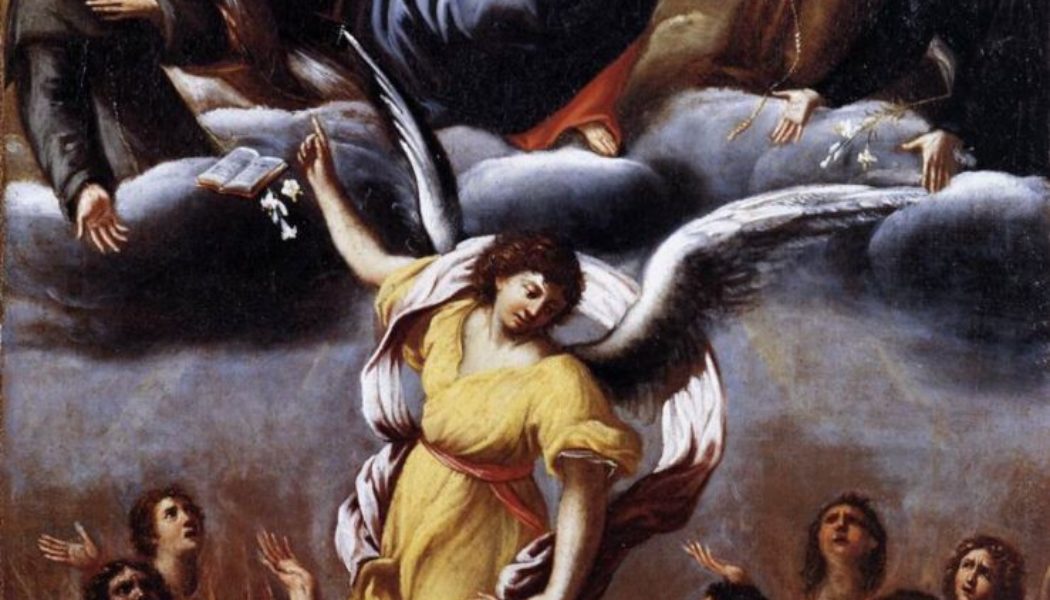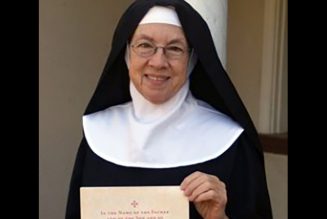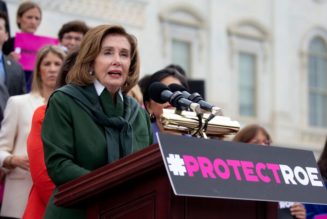The ritual phrase above is so common that many Catholics probably don’t even bother to think about what it is saying. I’d even venture to suggest that no small number of people in the pews couldn’t explain what it’s saying, at least not beyond “we’re praying for X.” And while that’s true, there’s more to the story that an earlier generation of Catholics might have articulated but many today, I fear, just can’t.
Why do we pray for X?
We pray for X because he’s dead and so can’t help himself. Now that doesn’t mean that the dead just lie there, utterly passive. We invoke the saints in heaven and ask for their prayers. They’re dead. Yet we’re confident they can help us.
So why are we praying for X?
Because he can’t help himself.
Older theologians might have written something like “in the mystery of God’s economy of salvation, the deceased are able to assist others by their prayers but not themselves.” That explanation, however, seems to reduce God to some arbitrary rule maker who “forces” people to be charitable towards others by preventing them from helping themselves. The problem is: that’s just not true.
We can help others because it’s a form of charity – in the full theological sense, not merely giving to some good cause. But to change ourselves requires us fully to be ourselves and, after death, we are not completely ourselves. Human beings are bodily and spiritual beings. My soul may be in Purgatory, but my body is in St. Gertrude’s Cemetery.
That is why “we believe in the resurrection of the body,” not just “the eternal life of the soul.” The whole person – my body and soul – made me good or bad. The whole person – my body and soul – must share together my eternal destiny.
So, the soul lacks agency vis-à-vis itself, arguably because it takes a whole person – body and soul – to act, which it cannot. We, however, who are full persons in this world and can act in charity, can help our beloved deceased.
Which means we need to appreciate the absolute importance of human embodiment and its relevance to life in this world and the world to come. Pace all the Cartesianism and duality that warps Western thinking, contrary to all the “identity” ideologies that depreciate the body or believe it can be changed at mere wish, the body is significant.
(This, of course, raises a whole series of questions about other contemporary funeral practices, from widespread acceptance of cremation to the deliberate destruction – “composting” – of the body in order to make topsoil out of Uncle Joe. But that’s the subject for another essay).

So, we understand why we should pray for the dead. But why offer a Mass?
Is it because “where two or three are gathered in His name” – and we are a “community?” Or perhaps because some people think communal prayer multiplies efficacy. Maybe to remember our old parishioner who used to come to 9:30 Mass and sat back there?
No.
We offer “Mass for the repose of the soul of X” because the Eucharist is a sacrifice, a re-presentation of Christ’s sacrifice on the Cross, an offering of the Most Precious Gift that Jesus Christ, true God and true man, offered in and with His Real Body and Blood which is really made present here and now in this sacrament and really part of His one great offering of Himself “for us and for our salvation.”
To understand that last paragraph presupposes an understanding of the Eucharist as sacrifice and in terms of Real Presence. A 2019 Pew survey showed that 69 percent of American Catholics today think the Eucharist is only a symbol. Had the Pew researchers asked, my bet is that they would have found equal theological illiteracy about the Mass as a sacrifice.
If we do not understand the Eucharist as a sacrifice in which Jesus Christ is again made present, here and now, body and blood, soul and divinity, then we also cannot understand the idea of suffrages for the dead, of how and why celebration of the Mass is efficacious “for the repose of the soul of X.”
If the Eucharist is but a communal meal that “symbolically” unites us and reminds us of Jesus as well as our beloved dead, then we are functional Protestants. The Catholic idea of the real value of prayer – especially the Mass – may then serve as a pious thought, but it’s not anything real. It doesn’t make sense.
I have argued elsewhere that this lack of a Catholic understanding of the value of the Eucharist as a sacrificial offering for the dead is why, not really knowing why we are at a funeral or at Mass, we want to turn them into “memorial services” for “the living as much as the dead,” the mere recollection of warm memories and sentimental remarks about “a better place” without those words really having deep meaning. The need for those memories is often driven now by the absence of a traditional wake, or when bodies are replaced by pictures at post-cremation funerals.
The American bishops have begun a “Eucharistic revival” in response to the scandal that over two-thirds of Catholics don’t understand the Real Presence. They also don’t understand the Eucharist as Real Presence offered in sacrifice and how that serves “the repose of the soul of X.” Until the fullness of Eucharistic theology is recovered and widely taught, whole swaths of Catholic understanding will remain “mysteries,” not in the proper sense of the suprarational dimensions of the divine, but of religious illiteracy. Including why “this Mass is offered for the repose of the soul of X.”
*Image: An Angel Frees the Souls of Purgatory by Ludovico Carracci, c. 1610 [Pinacoteca Vaticana, Rome]
You may also enjoy:
Randall Smith’s A Eucharistic Faith
David Carlin’s Purgatory
The Catholic Thing is a forum for intelligent Catholic commentary. Opinions expressed by writers are solely their own.







